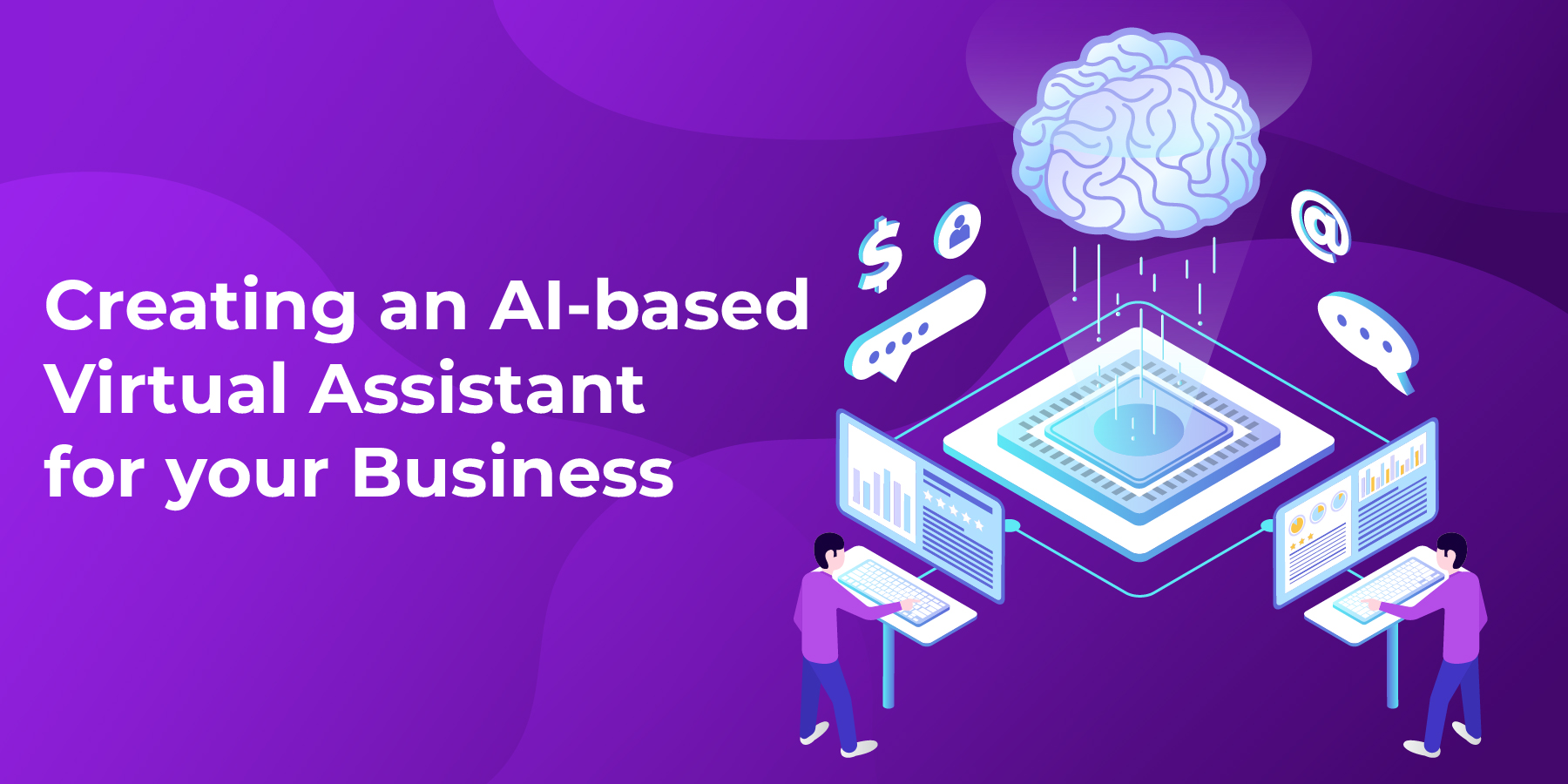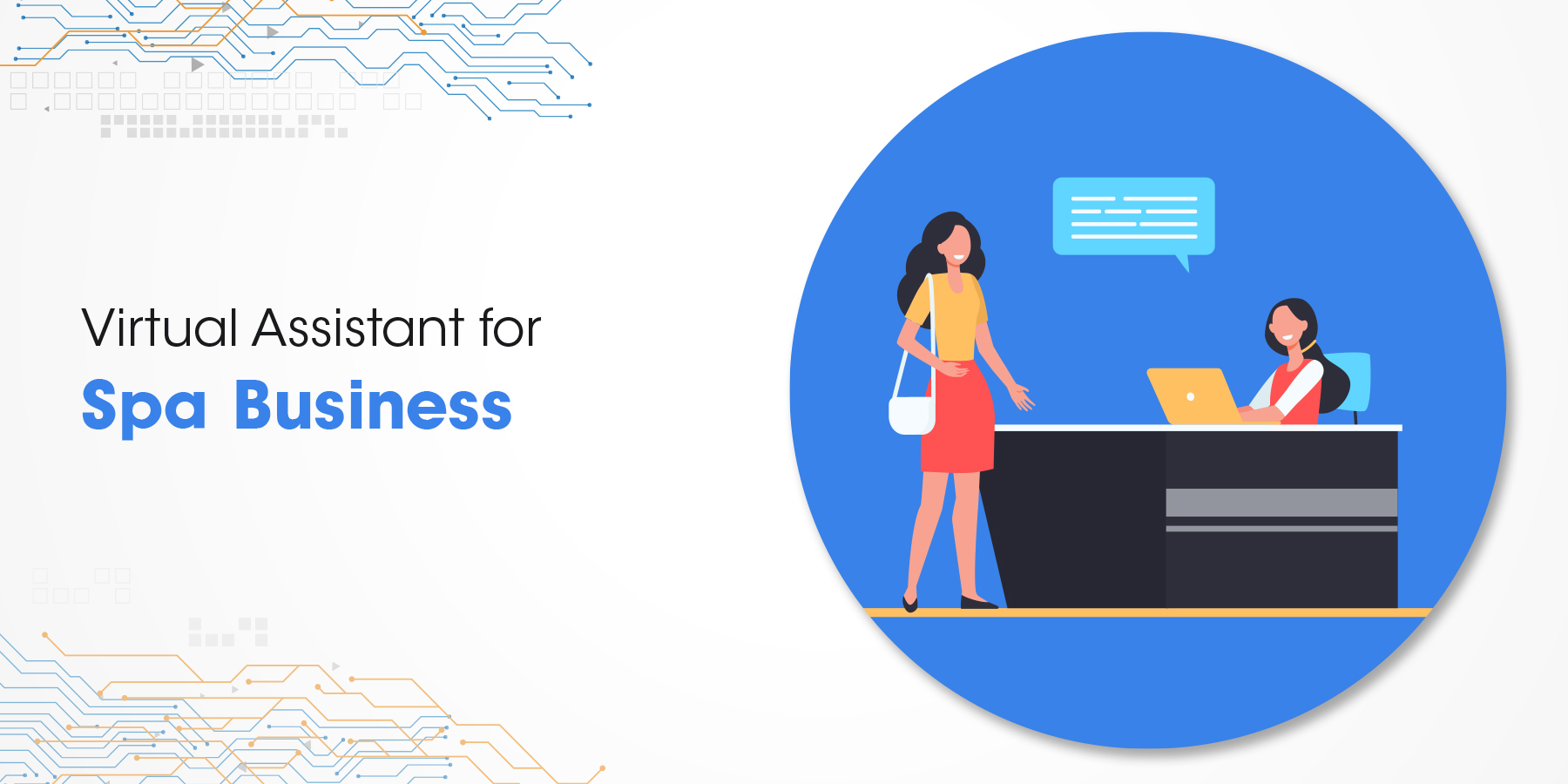Creating an AI-based Virtual Assistant for your Business
Do you ever feel you have too much to handle at work and could use an extra hand? What if we told you you could have an Artificial intelligence virtual assistant to help you?
As technology advances, so does the potential for businesses to streamline their processes and automate tasks. One of the latest trends in business technology is using virtual assistants powered by artificial intelligence (AI). These virtual assistants can help businesses save time, money, and resources by automating tasks and providing real-time customer support.
This article will explore if creating a virtual assistant AI will benefit your business. We will discuss how it can help you increase efficiency, improve customer satisfaction, and reduce costs, simultaneously its negative impact on your business in the long run. Additionally, we will provide tips on creating your virtual assistant AI, including selecting the right platform and programming the necessary features.
Benefits of AI-based Virtual Assistant for Business
1. Increased Efficiency
Artificial intelligence virtual assistants can handle a wide range of repetitive and time-consuming tasks, such as responding to routine customer inquiries, scheduling appointments, and processing orders. By automating these tasks, businesses can free their employees to focus on higher-level tasks requiring human input. This results in increased productivity, faster response times, and improved efficiency.
2. Cost-Effectiveness
Hiring and training new employees can be costly, but Artificial intelligence virtual assistants can be a more cost-effective solution. Virtual assistant AI doesn’t require benefits, sick leave, or vacation time; they can work around the clock without additional costs. Additionally, a virtual assistant can handle a much larger workload than a human employee, which means a business can save on hiring multiple employees.
3. 24/7 Availability
One of the most significant advantages of an Artificial intelligence virtual assistant is that it can provide round-the-clock availability. With a virtual assistant AI, businesses can offer 24/7 customer support, sales, and other services, even outside regular business hours. This can help businesses attract and retain customers who require services at non-traditional hours or from different time zones.
4. Improved Customer Experience
Artificial intelligence virtual assistants can improve the customer experience by providing personalized assistance and faster response times. Virtual assistant AI can use natural language processing (NLP) to understand customer inquiries and provide relevant and helpful responses. This can result in increased customer satisfaction and loyalty. Additionally, virtual assistants can collect and analyze customer data to give businesses valuable insights into customer behavior and preferences. This information can improve products, services, and marketing strategies.
Building an AI-based Virtual Assistant for Business
Building an Artificial intelligence virtual assistant for business can be a complex process, but following these points can help you make informed decisions and create an effective tool for your organization:
- Determine the purpose and functionality of the virtual assistant: Before you start building your virtual assistant AI, it’s essential to define its purpose and what tasks it will perform. Will it be used for customer service, sales, or internal operations? Will it be able to answer basic questions, schedule meetings, or perform more complex tasks? Knowing its purpose and functionality will help guide the development process.
- Choose the right platform and technology: There are many platforms and technologies available for building virtual assistants, including chatbot frameworks, voice assistants, and natural language processing (NLP) tools. You’ll need to choose the right one based on your organization’s needs and resources.
- Develop a conversational interface and natural language processing (NLP) capabilities: The conversational interface is the user-facing component of the virtual assistant, so it’s essential to make it intuitive and easy to use. Additionally, NLP capabilities will help the virtual assistant AI understand and respond to natural language queries, making it more effective and user-friendly.
- Train the virtual assistant AI with relevant data and use cases: To ensure that the virtual assistant can effectively perform its tasks, it must be trained with relevant data and use cases. This can include customer service logs, sales data, or internal processes. The more relevant data you provide, the better the virtual assistant will perform.
- Test and refine the virtual assistant: Once the virtual assistant AI technology is built, it must be tested thoroughly to identify and fix any issues. You’ll also want to gather user feedback to improve its functionality and user experience.
Use Cases for AI-based Virtual Assistant in Business
Customer Service and Support
Artificial intelligence virtual assistants can be instrumental in improving customer service and support in a business. They can be programmed to provide prompt and accurate responses to customer queries, complaints, and feedback. AI-powered chatbots can help companies to offer 24/7 customer support, reducing the workload of customer service representatives. Virtual assistant AI technology can also be trained to analyze customer behavior and anticipate their needs, providing personalized recommendations and improving the overall customer experience.
Sales and Marketing
Virtual assistant AI can help businesses improve their sales and marketing efforts by providing targeted recommendations, analyzing customer data, and automating routine tasks. For example, AI-based virtual assistants can be programmed to identify potential sales leads, nurture them through personalized communication, and give sales representatives real-time insights into customer preferences and behaviors. AI-based virtual assistants can also be used to create customized marketing campaigns, optimize pricing strategies, and analyze the effectiveness of marketing efforts.
Human Resources
Artificial intelligence virtual assistants can assist human resources departments in various tasks, such as recruiting, employee onboarding, and performance management. They can help businesses streamline hiring by screening resumes, scheduling interviews, and communicating with candidates. AI-powered virtual assistants can also automate routine HR tasks, such as updating employee records and managing benefits.
Moreover, they can provide real-time feedback to employees, help identify skill gaps, and recommend training programs.
Finance and Accounting
Artificial intelligence virtual assistants can help businesses in finance and accounting by automating routine tasks, reducing errors, and improving efficiency. They can be programmed to process invoices, track expenses, and manage payroll. Virtual assistant AI can also analyze financial data, identify trends, and provide insights into financial performance.
Additionally, they can help businesses comply with regulatory requirements, such as tax filing and reporting.
Challenges and Considerations
Data Privacy And Security
As more and more organizations adopt AI and machine learning technologies, one of the primary challenges they face is ensuring the privacy and security of the data they use. Using personal data for training AI models raises concerns about data protection, as any breach in the data pipeline can lead to the leakage of sensitive information. To mitigate these risks, companies must follow strict data privacy regulations, such as the GDPR, HIPAA, and CCPA, and take appropriate measures to safeguard their data.
Ethical Considerations And Biases
AI and machine learning models are trained on data. If the data used for training contains biases or reflects systemic inequalities, the resulting model may perpetuate these biases. Thus, organizations need to consider ethical implications when developing and deploying AI systems. They must ensure transparency and accountability, mitigate biases, promote fairness, and uphold ethical standards.
Integration With Existing Systems And Processes
Another challenge organizations face when adopting virtual assistant AI and machine learning technologies is integrating them with existing systems and processes. Many organizations have legacy systems compatible with modern technologies, making integration difficult. To overcome these challenges, organizations must conduct careful planning and analysis to ensure seamless integration of virtual assistant AI Technology and machine learning systems with existing infrastructure.
Maintenance And Updates
Finally, maintaining and updating AI and machine learning systems is a significant challenge. These systems require continuous monitoring, tuning, and maintenance to ensure they remain effective over time. Organizations must have the plan to update models, address changes in data or business requirements, and keep the system running smoothly. Training personnel on the use and maintenance of these systems is also essential to ensure their continued effectiveness.
Future of AI-based Virtual Assistants for Business
The future of Virtual assistant AI for business holds immense potential, but there are also some concerns about their negative impact. Here are some points about the lousy future of AI-based virtual assistants for business:
- Dependence on technology: With the increasing reliance on AI-based virtual assistants, businesses may become too dependent on technology. This could lead to a lack of human interaction and a loss of personal touch, which can negatively impact customer relationships.
- Security and Privacy Concerns: AI-based virtual assistants gather a lot of personal and confidential data, raising concerns about privacy and security. If this data falls into the wrong hands, it could lead to severe consequences such as identity theft, fraud, and more.
- Limited Human Understanding: Virtual assistant AI can only operate within the limits of their programming and algorithms. They need more empathy and a nuanced understanding of human employees’ interactions, which could lead to misunderstandings and conflicts.
- Bias and Discrimination: AI-based virtual assistants can sometimes perpetuate biases and discrimination based on the data they are trained on. This could lead to unintentional harm to specific groups of people and damage the business’s reputation.
- Over Reliance on AI: Over reliance on virtual assistant AI can decrease creativity and innovation. When tasks are automated, employees may need more motivation to come up with new ideas or ways of doing things, which can hinder progress and growth.
Conclusion
An Artificial intelligence virtual assistant can be a game-changer for businesses of all sizes. It can help automate routine tasks, improve customer service, and increase productivity. With the advancements in natural language processing and machine learning, virtual assistant AI are becoming more intelligent and capable of handling complex tasks.
However, it is essential to carefully consider the needs of your business before implementing a virtual assistant. You should also ensure you have the necessary resources to develop and maintain it effectively. Overall, an AI-based virtual assistant can revolutionize how businesses operate but can also negatively impact your business.
At Vgrow, we are dedicated to offering our clients the best virtual assistant and digital marketing services. Do you have questions about choosing between an AI-Based virtual assistant and a human VA? We are here to help! Write your comments down below, and we’ll happily answer!

Kimberly Morrison
Kimberly Morrison has been the Director of Client Relations at VGROW since 2019. She builds strong customer relationships, drives client retention, and oversees team productivity. Kimberly's approach to customer engagement is key to VGROW's aim of streamlining business processes through virtual assistance services.





